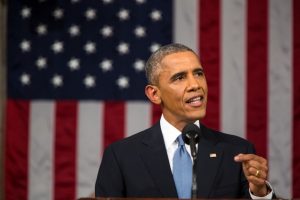Repeated accusations with no evidence only lead to hysteria

Byseyhanlai, via Wikimedia Commons
As accusations of Russia hacking into the 2016 election continue to grow, the lack of evidence to support these claims persists creating a possibility for a new Red Scare.
March 16, 2017
On July 22, 2016, the Democratic National Committee was the victim of a cyberattack. WikiLeaks published 19,252 emails, along with 8,034 attachments. The content of the leaks revealed how the DNC conspired to derail the campaign of former Democratic candidate Bernie Sanders.
WikiLeaks did not reveal its source, but a hacker named “Guccifer 2.0” claimed responsibility. However, U.S. Intelligence agencies stated, with high confidence, that the leak was backed by two Russian intelligence groups. The founder of WikiLeaks, Julian Assange, stated that their source was neither the Russian government or a private state.
Russian has also been accused of interfering with the 2016 Presidential Election to help Donald Trump win.
Vladimir Putin, an outspoken critic of Hillary Clinton, was clear with his happiness with Donald Trump’s victory, announcing that Russia was ready to restore relations with the U.S., just one day after Donald Trump’s victory.
All 17 U.S. Intelligence agencies have investigated these claims, and have no evidence of Russian interference. They have only stated with “high-confidence” that there was interference. While claims that Russia tried to help Donald Trump win, there is also no evidence to support that.
Former National Security Adviser Michael Flynn resigned his position after misleading Vice President Mike Pence about his conversations with Russian Ambassador Sergey I. Kislyak, regarding U.S sanctions against Russia.
Two weeks ago, Attorney General Jeff Sessions recused himself from investigations involving Russia, following the discovery of a meeting he had with a Russian diplomat during his time on the Senate Armed Services Committee. When questioned during his confirmation hearing if he had had any conversations with Russian officials about President Trump’s campaign, Attorney General Sessions did not mention this meeting.
The main concern is that members of Donald Trump’s cabinet, or even Trump himself, could have conflicting ties to the Russian government, and would easily bend to their will.
President Trump wants no Russian ties in his administration. General Flynn’s resignation proved that.
Jeff Sessions’ meeting with Russian diplomat Sergey Kislyak took place in September of 2016. During that time, Sessions was serving as a senior member of the Armed Services Committee, and had met with over 25 foreign ambassadors from countries including Britain, Korea, Japan, Poland, India, China, Canada, Australia, Germany and Russia. Sessions was merely doing his job.
From 1950 to the dissolution of the Soviet Union in 1991, relations with the Russians have been less than friendly.
With the Cuban Missile Crisis, and the U-2 incident, it seemed like our two countries were always one step away from war.
During 1947 to 1956, the Cold War between Russia and America began to take its toll on American citizens.
In those years, a fear of communism and Russia, dubbed “The Red Scare,” took hold of America, and brought about fear for the American people. Americans were so engulfed by fear that they began to arrest citizens, not off of evidence, but off of pure speculation of any connection to Russia.
This process was named McCarthyism, which is defined as the practice of making accusations of subversion or treason without proper regard for evidence.
While it is true that relations are not exactly what they were during the Cold War, the basis of McCarthyism still is.
Accusing members of the Trump cabinet, as well as Trump himself, of being embedded with Russia, and betraying our democracy, with no evidence, is the very definition of McCarthyism.
If these accusations continue to spread through President Trump’s campaign, they may soon reach members of Congress, Supreme Court, or even anyone associated with President Trump. Just like in the days of The Red Scare, Americans could soon fall to the fear of the Russians.
If no evidence is found against the Russians, these accusations must stop. If they don’t, the possibility of a new Red Scare is very much a reality.






